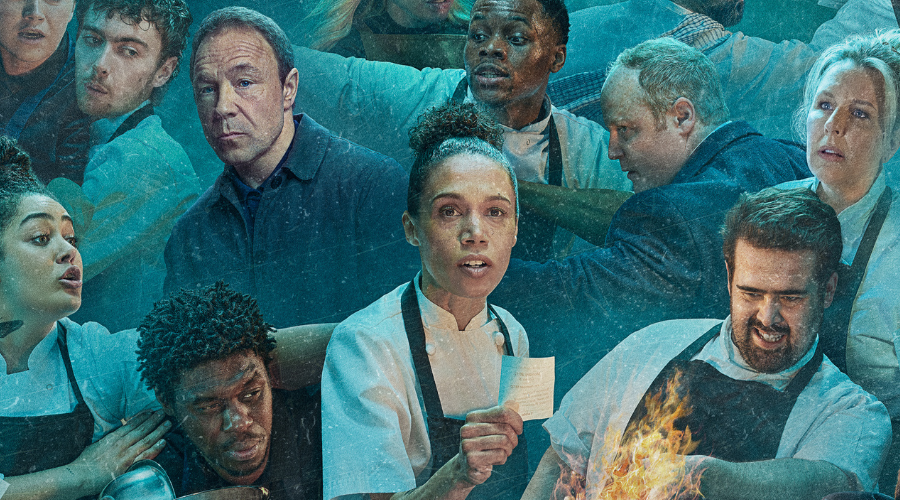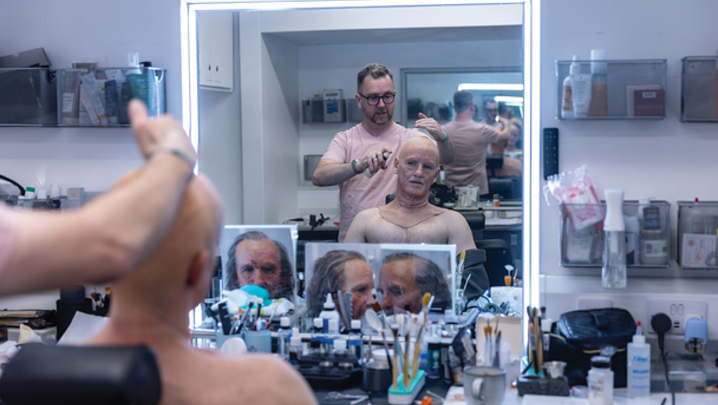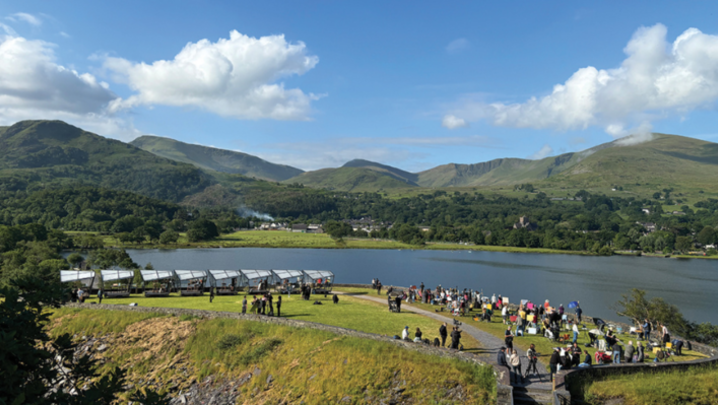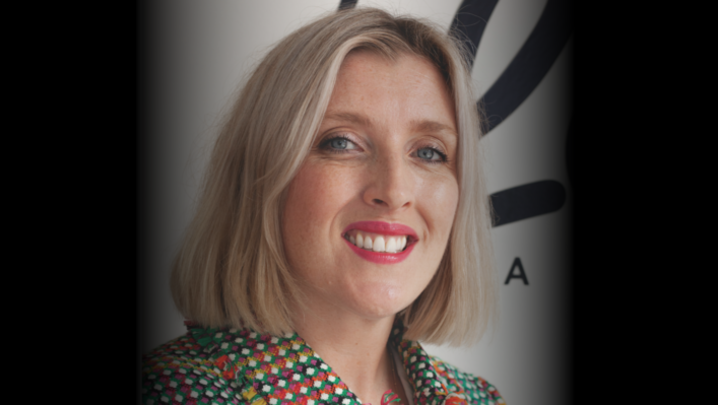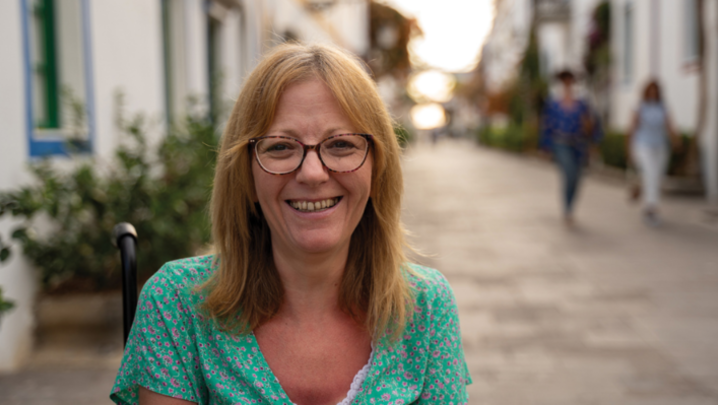Samantha Beddoe is co-founder, with director Philip Barantini, of It’s All Made Up Productions.
She hopes the indie’s debut – hit BBC One drama Boiling Point – is the first of many TV and film successes.
Why did you set up an indie together?
Phil and I were introduced in 2019. It was a coincidence that we are both from Liverpool and have similar backgrounds. Neither of us knew anyone in the industry – we fought our way in and built these careers for ourselves, and we both have very similar goals. So we decided to work together.
The 2023 Netflix thriller Accused was our test project before we set up It’s All Made Up. We found we loved working together – Phil is so creative and I come from a production finance background, so we fit together really well.
What does the job involve?
Every day is different; it could include working on the financial/legal side of a production; finding and developing projects; talking to writers, directors, commissioners and journalists; or meeting agents and people from other production companies.
It’s very varied, depending on where projects are in their life cycle, which is what I love. In this job, I get to work on a project from beginning to end. It’s hard, but the highs so outweigh the lows.
Is it tough getting an indie off the ground?
Phil and I had something to show people – the Boiling Point short and film, and Accused – and we already knew how to work together. It is tricky but it would be harder without a track record.
You can set up a business at Companies House; that’s not hard – the hard bit is getting people to take you seriously and believe that you can make their project, and commissioners to trust you with their money. I used to work in production finance, so I speak that language and Phil speaks the creative language.
What was It’s All Made Up’s first production?
Last year’s BBC One drama Boiling Point, a sequel to the film. We’re very proud of it and hopefully we get to make a second series. The short, film and TV series show what a brilliant film-maker Phil is. It felt like everything came together, a perfect marriage of creativity and performance. It’s not often that happens.
What other projects do you have in the pipeline?
We’re executive producing a feature, the prison thriller Wasteman, with Agile Films and we also have a number of feature and television projects in development, which I can’t talk about yet.
Is there a tension between the creative and commercial sides of the business?
Yes, you have to figure out what the commercial hits will be, then you can indulge yourself in more arty, thought-provoking pieces.
That’s a balance that most production companies who care about their output have to find. We want to make films and programmes that people think about long after they watch them.
How did you get started in the industry?
I always wanted to be a teacher because I loved school – my life was school when I was younger. I did a degree in chartered surveying, needed a job and found myself working in finance. I worked with a production co-ordinator who was temping as a receptionist and she told me about working in film and telly – I realised it wasn’t just for people in London and America.
I didn’t like my job, so I emailed lots of production accountants and, six months later, I got a job on ITV2 drama Trinity. Being on a set was the most magical thing in the world; I had come from working on a Liverpool industrial estate looking out the window at HGVs.
What else did you work on in the accounts department?
Loads of stuff. In film, Avengers: Age of Ultron, Beauty and the Beast, a re-make of Papillon and Emma; in TV, the first series of Death in Paradise, which took me to Guadeloupe, Top Gear, Baptiste and Star Wars: The Acolyte.
Is starting out in the accounting department still a good route into TV?
Accountants have a really good overall view of a production. I understood what people did and knew what they needed to do their job well. I had to answer to the HMRC, auditors, studios, producers – I had to keep a lot of people happy.
Now, as a producer, I understand how important these relationships are. It’s also a department that gets massively overlooked – people don’t understand how many accountants work on shows and how important they are.
Do you have an accountancy qualification?
I went to night school to get an Association of Accounting Technicians qualification but now you probably don’t need a qualification. When I started, accountancy teams were small; now, with tax breaks – which are brilliant – and bigger productions, the teams have grown to accommodate that, giving the opportunity for on-the-job training.
You can start right at the bottom as a clerk without finance qualifications. The downside is that there are fewer opportunities to go on set – no one is paid in cash any more, no one physically signs a piece of paper.
What do you bring to work with you?
I work from our offices in Oxford Street, London. In my bag, I’ve got a laptop, two notebooks, my diary and whatever book I’m reading on the train – we’re always looking at books to adapt.
What are the best and worst parts of the job?
When a commissioner gets the idea and wants to work with us is always a real high because I worry when I’m working hard on a project, “Is it just me who loves this?”. The lows are when people don’t get it.
Pitching projects must be hell?
No, because I only pitch things I genuinely love, which I know we could do justice to; I think that comes across when I pitch. We’ve got 18 projects on our slate at the moment and I could talk passionately about every one of them.
What qualities do you need to do your job?
Determination, the ability to plan and troubleshoot, and be good with people. This job would exhaust you if you didn’t enjoy talking.
What is your career highlight?
I loved working on FX series Atlanta, which was one of my favourite TV shows, but Accused has a special place in my heart because it was my debut as a producer. I think Phil and I did something really great with a very small budget.
Is there a TV series you’d love to make?
Anything to do with music – I’m obsessed.
How do you see the company in 10 years’ time?
Bigger, and making film and TV to a high level. Look at what A24 [the US-based independent producer] is doing – it is setting the standard for indie film-making. To be a mini-studio, offering finance to other film-makers and distributing would be amazing.

